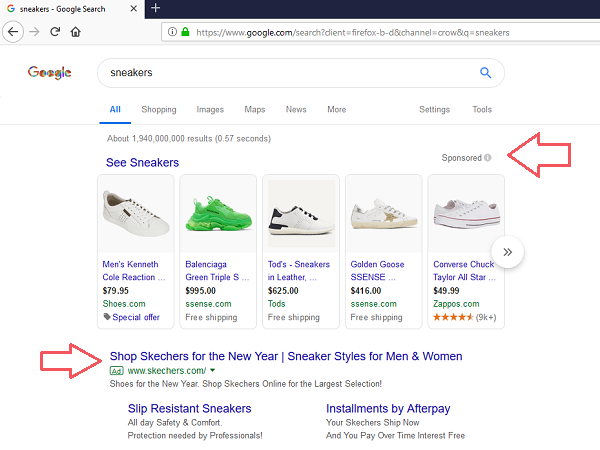PPC vs. PPM: Which One Works Better in E-commerce
If you are in the e-commerce business digital marketing is probably an essential part of your business strategy. With it, you acquire new clients, raise brand awareness, communicate with customers, etc.
The main goal of digital marketing is to drive more traffic to the website which would lead to customers taking actions on it (such as registering or buying your product). You can use ads to do so. When you are setting them up you have a number of model of online advertisement to choose from. The most popular ones are PPC and PPM models. These models aren’t only present in search engines marketing, but Facebook and other social media channels. More or less, they work the same way everywhere.
Let’s see now what is the difference between the two, and which one works best in what situation.
What is PPC / CPC?
First, we’ll explain PPC. PPC stands for Pay Per Click. It’s a model of online advertisement for search engines (such as Google, Bing…) where companies display ads for their products (or services) and pay only when a user clicks on them. If your ad was shown 1500 times, but only 200 people clicked on it – you’ll be paying only for those 200 clicks. The company decides the maximum amount of money they’re willing to spend for each click (the goal is to lower the cost per click if possible). But sometimes the company will be “forced” to spend more money if they want to target more searched words.
Why would they have to spend more money on certain words? Well, this process functions as an auction. Companies create ads and then they bid on certain phrases (keywords). Very popular keywords/search terms (ones searched frequently) in your industry are going to have a higher price than those that aren’t as popular. Nobody wants to bid on words that never get searched.
What is PPM / CPM?
When it comes to PPM or Pay Per Mile/Impression the situation is a little bit different. Companies are still bidding on keywords, but here they will pay for the number of impressions (times their ad is shown), not the number of clicks. Usually, the price is based on 1000 impressions (e.g. you bid on word sneakers with 3$, those 3$ will be spent after 1000 impressions).
Which one to use?
As for every concept and model in the business world, there are situations where one is more suitable than the other. Before choosing a campaign, you need to evaluate some things, because they can affect its success. Usually, the most important things to have in mind are; ad budget, brand familiarity, campaign objective, a channel that you are going to use, etc. Let’s see now how PPC and PPM work in different situations.
- PPC should be the first choice for the companies that want to improve their conversions; whether it is a number of registrations or sold items. The beauty of this method is you’ll be paying for each click, have a better engagement rate and be able to keep track of clicks.
- You are a new company that wants to raise brand awareness. If you are not looking for immediate action, PPM will work better for you. Users will see your ads and pick up on your brand.
- You are limited by the budget. When in this situation, you should do extensive research on your target group and keywords they search for. After that, you should bet smartly on the most important ones and implement a PPC campaign. When you are limited by money you don’t want to pay for the impressions, but for click. It’s more affordable, plus people will see it even if they don’t click on it (and you’re not paying anything).
In the beginning, you should start small. Run an experiment with the low bid amount, then track and analyze those results. Based on them you can determine how you will proceed further. You might start with PPM and then switch to PPC because it didn’t work (or vice versa). Getting things right and the best results will take time.
And one important thing to mention in the end is don’t forget to run search terms analysis on a regular basis. Depending on the industry and your target group they can change; some more frequently than others.
Which one do you prefer? Share your opinion with us down in the comments.





